Complete Solutions to Higher order thinking skills of chapter THERMODYNAMICS of Class 11 book with complete answers and questions
| Class 11 | PHYSICS |
| Chapter | THERMODYNAMICS |
| PRADEEP | Higher order thinking skills |
| Number Of Questions | 9 |
| Academic Year | 2023-24 |
(Figure) Shows three isothermal curves at temp `T_(1), T_(2) and T_(3)`
`T_(3)gt T_(2)gt T_(1)`. A system changes its state by four paths a, b, c, and d, .Identify the path in which changes in internal energy of the system is maximum.
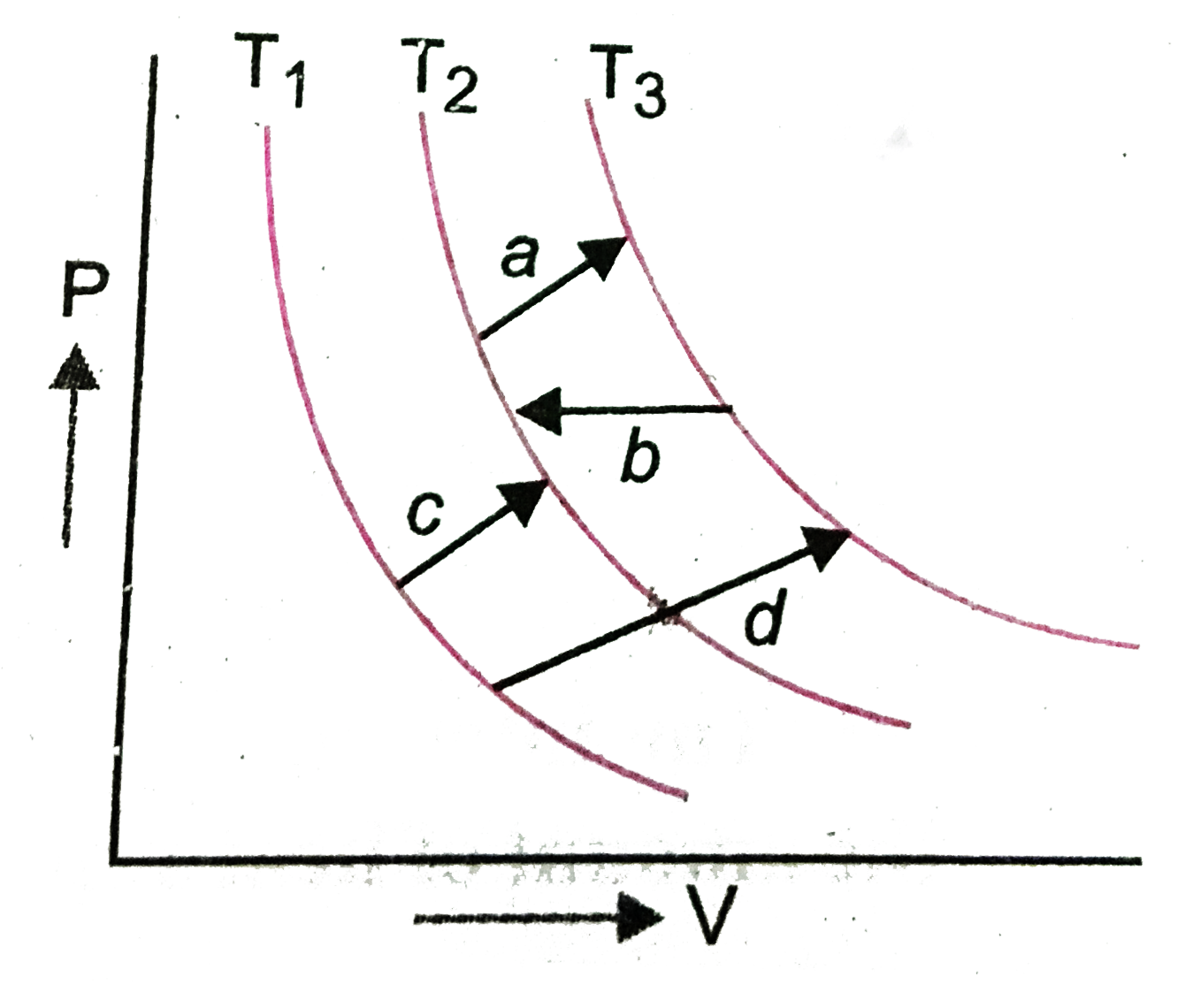
View SolutionA sample of `2 kg` of monoatomic helium (assumed ideal) is taken through the process ABC and another sample of `2 kg` of the same gas is taken through the process ACD as shown in (figure). Given molecular mass of He `= 4 and R = 8.3J mol e^(-1)K^(-1)`
(i) What is the temperature of `He` in each of the states A, B, C and D?
(ii) How much is the heat involves in process , ABC and ADC?
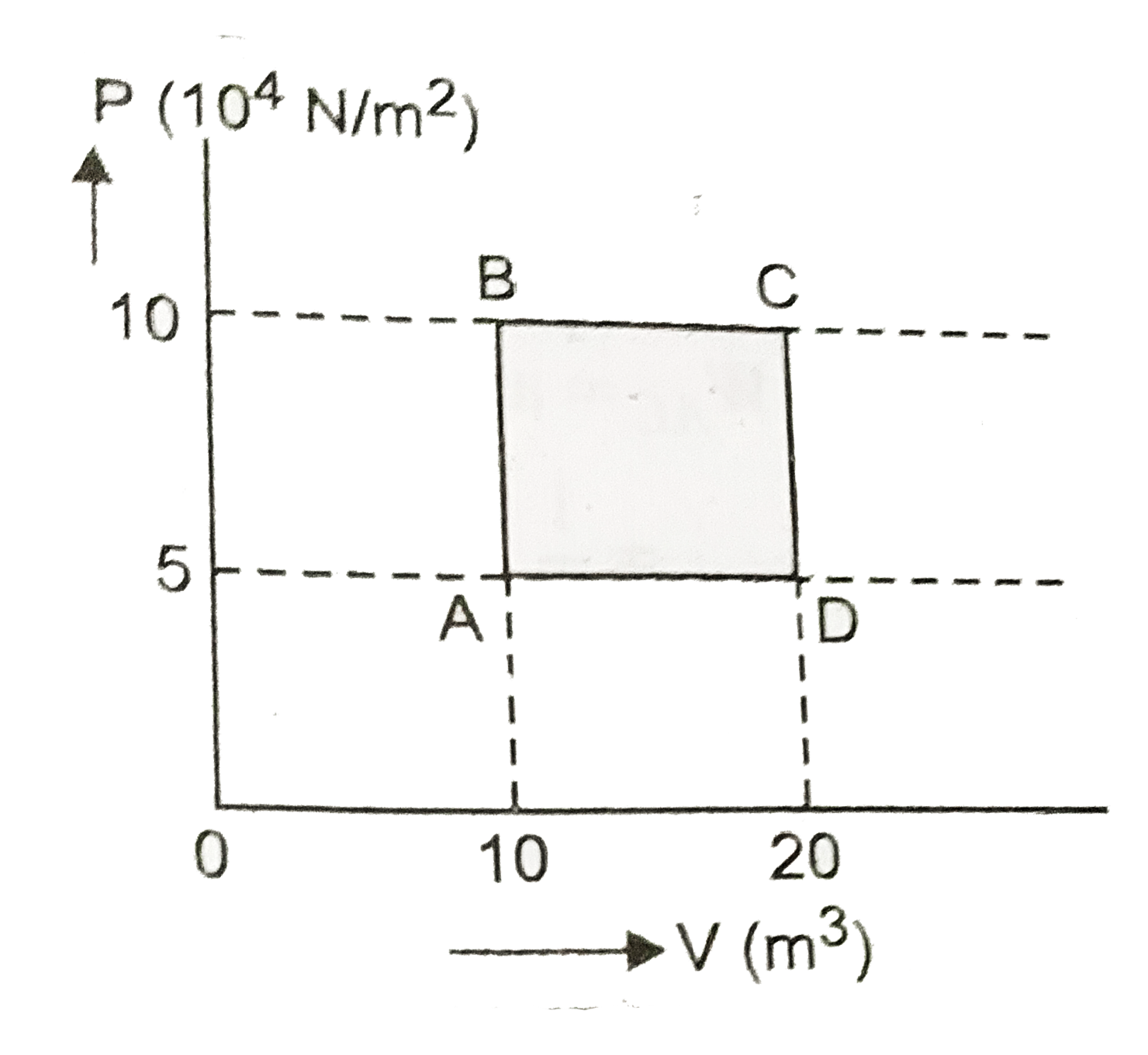
View SolutionFigure. Shows an ideal gas changing its state `A` to state `C` by two different path `ABC` and `AC`.
a. Find the path along which the work done is the least.
b. The internal energy of the gas at `A` is `10 J` and the amount of heat supplied to change its state to `C` through the path `AC` is `200 J`. Find the internal energy at `C`.
c. The internal energy of the gas at state `B` is `20 J`. Find the amount of heat supplied to the gas to go from state `A` to state `B`.
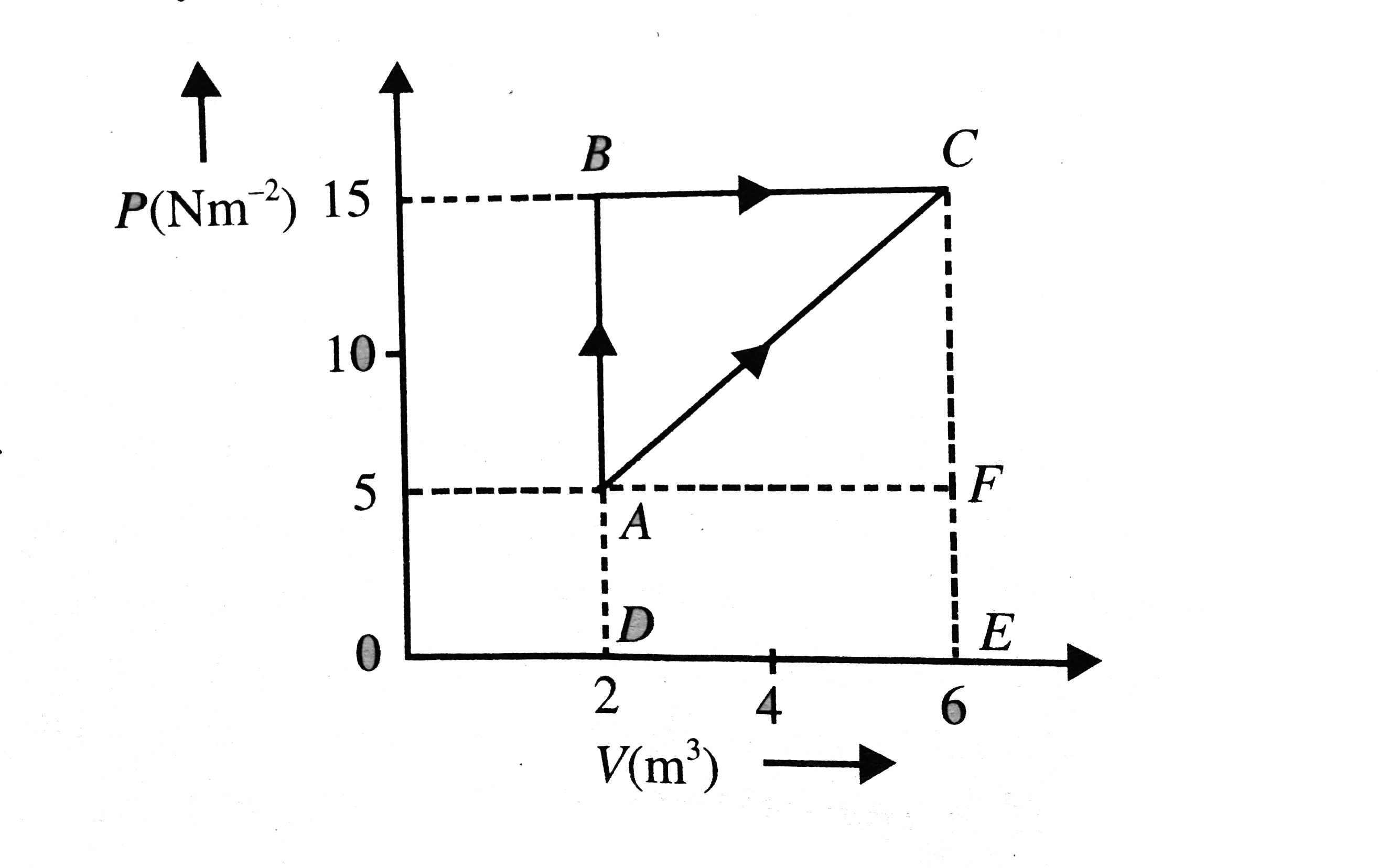
View SolutionTwo moles of helium gas undergo a cyclic process as shown in Fig. Assuming the gas to be ideal, calculate the following quantities in this process
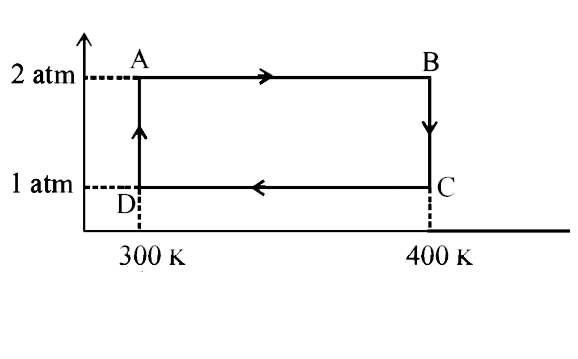
(a) The net change in the heat energy
(b) The net work done
(c) The net change in internal energy
View SolutionA thermos flask contains coffee. It is shaken vigorously. (i) Has any heat been added to it.
(ii) Has any work been done on it.
(iii) Does it internal energy change?
(iv) Does its temp. rise?
View SolutionAt `27^@C` two moles of an ideal monatomic gas occupy a volume V. The gas expands adiabatically to a volume `2V`. Calculate
(a) final temperature of the gas
(b) change in its internal energy and
(c) the work done by the gas during the process. [ `R=8.31J//mol-K`]
View SolutionA sample of an ideal gas is taken through the cyclic process `abca` . It absorbs `50 J` of heat during the part `ab`, no heat during `bc` and rejects `70 J` of heat during `ca`. `40 J` of work is done on the gas during the part `bc`.
(a) Find the internal energy of the gas at `b` and `c` if it is `1500 J` at `a`.
(b) Calculate the work done by the gas during the part `ca`.
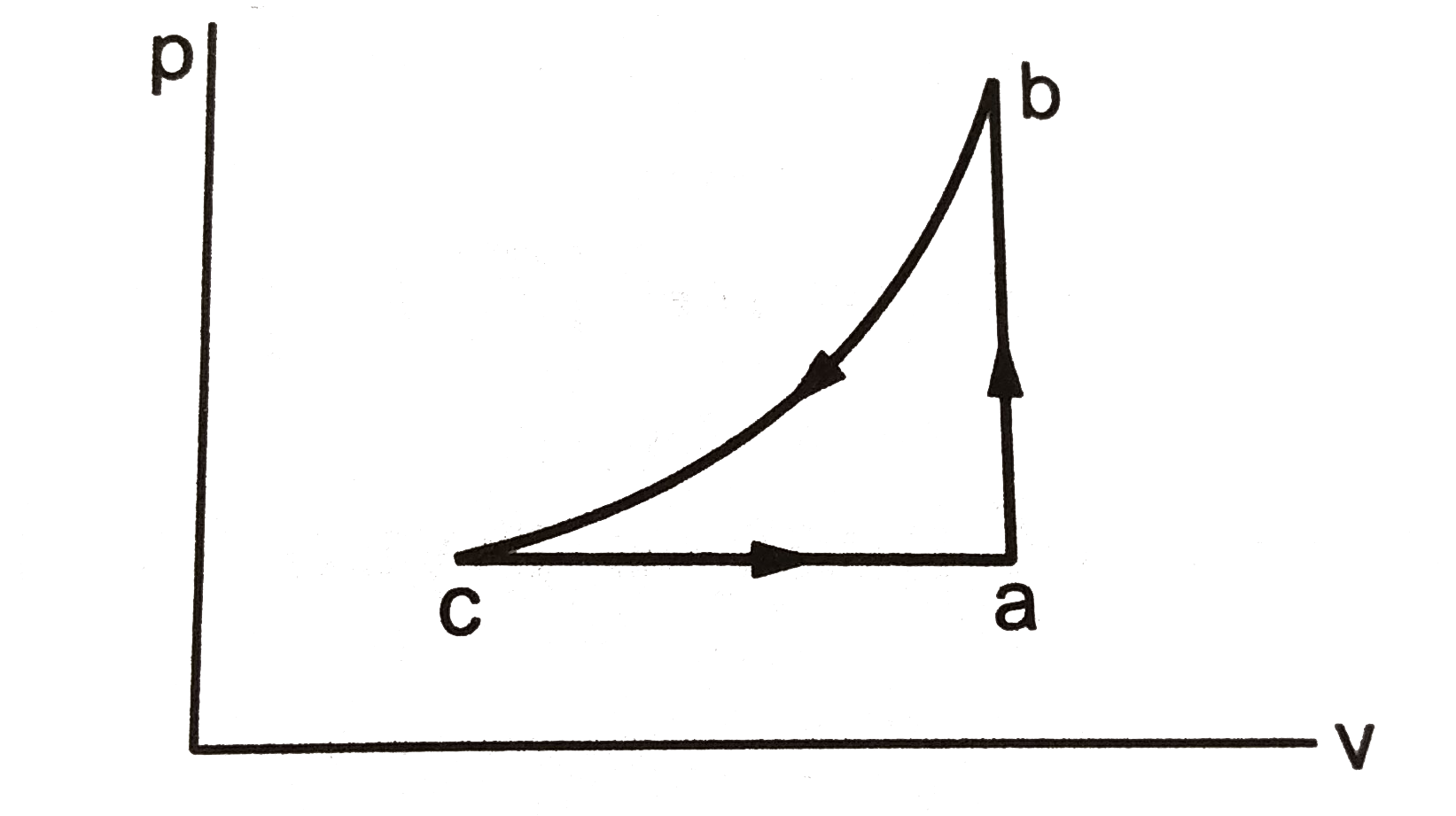
View SolutionThe initial volume of an ideal gas is `V_(1)` and the initial pressure is `P_(1)=6` atmosphere. It expands isothermally to a volume `V_(2)` and pressure `P_(2)=3 atm`, and then adiabatically to a volume `V_(3)` and pressure `P_(3)=2 atm`. Draw a rough sketch of these changes. Calculate the value of `V_(2)//V_(1) and V_(3)//V_(2)`.
Take `gamma= 1.4`.
View SolutionAbout 0.014 kg nitrogen is enclosed in a vessel at temperature of `27^(@)C` How much heat has to be transferred to the gas to double the rms speed of its molecules ? `(R = 2 cal//mol K)`
View Solution
Higher order thinking skills questions and complete solutions for chapter THERMODYNAMICS of PRADEEP PHYSICS (HINGLISH) of Class 11
All Exercises from PRADEEP Class 11 PHYSICS THERMODYNAMICS
- Advanced problems for competitions
- Assertion- Reason Type Questions
- Conceptual Problems
- Curiosity Question
- Higher order thinking skills
- Interger Type questions
- Long answer questions
- Long answer questions(NCERT)
- Multiple choice questions
- Multiple choice questions (NCERT)
- Multiple choice questions.
- NCERT Questions
- Problems for practice
- Sample problems
- Short answer questions
- Short answer questions(NCERT)
- Solved examples
- Value based Questions
- Very short answer questions
- Very short answer questions(NCERT)